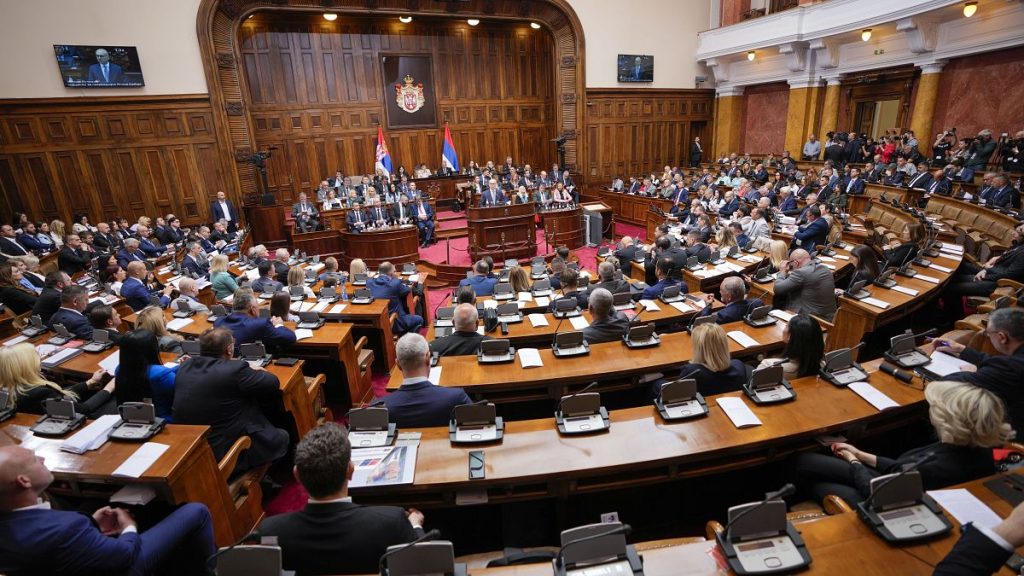The Movement of Socialists party in Serbia has announced plans to draft a bill that would restrict the activities of foreign non-governmental organizations operating within the country. The proposed law is similar to the controversial law on foreign agents expected to be implemented in Georgia. The party aims to protect the interests of Serbia by limiting the influence of foreign-funded NGOs that they believe promote agendas against the country’s sovereignty and security. This move could bring more attention to the left-wing nationalist party, which currently only has two MPs in the National Assembly.
One of the party’s MPs, Bojan Torbica, defended the draft law by stating that betraying one’s own country and people for profit should no longer be tolerated. Another party leader, Đorđe Komlenski, expressed concerns that foreign-funded NGOs could be working to advance agendas that are harmful to Serbia, such as promoting Kosovo’s independence and distorting historical events like the genocide in Srebrenica. These issues have been significant in Serbian nationalist discourse since the wars of the 1990s in the region.
Although it is uncertain whether the Movement of Socialists party can gather enough support to pass the draft law, civil society actors like the Youth Initiative for Human Rights are worried about the potential impact on Serbian society. They fear that the law could be used as a tool to intimidate civil society and independent media, limiting the advocacy of democratic principles. The move has raised concerns about the future of freedom of expression and human rights in the country.
The EU has criticized Serbia, a candidate for EU membership, for not conducting free and fair elections, particularly in a recent rerun of local elections. The allegations of voter fraud have raised doubts about the country’s commitment to democratic principles and the rule of law. The proposed anti-foreign NGO law adds to these concerns about the erosion of democratic values in Serbia and the potential for further restrictions on civil society and media freedom.
The push for the anti-foreign NGO law in Serbia reflects the growing influence of nationalist parties and their efforts to protect national interests from perceived external threats. By targeting foreign-funded organizations, these parties aim to limit foreign interference in domestic affairs and maintain control over the narrative around sensitive historical events. The proposed law has sparked debates about the balance between national security and freedom of expression, highlighting the complex challenges facing Serbia as it navigates its path towards EU membership.
Overall, the Movement of Socialists party’s proposed anti-foreign NGO law in Serbia has raised concerns about the potential impact on civil society, media freedom, and democratic values. The move reflects broader trends of nationalist parties seeking to protect national interests and limit foreign influence in domestic affairs. As Serbia faces scrutiny over its commitment to democratic principles and the rule of law, the proposed law adds another layer of complexity to its path towards EU membership. It remains to be seen how this debate will unfold and what implications it may have for Serbia’s future.


